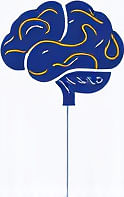Strategies for ADHD in Virtual Social Events
 by Verner Mayer
by Verner Mayer
Discover practical ways to handle virtual social events with ADHD, focusing on maintaining focus and balance in remote settings. This guide offers supportive tips for adults seeking better productivity and connections without overwhelming demands.

Remote work often involves virtual social events, which can present unique challenges for adults with ADHD. These gatherings, whether team meetings or casual online chats, require sustained attention and interaction that might feel difficult at times. For individuals with ADHD, maintaining engagement in these settings is key to fostering connections and productivity.
Challenges of Virtual Social Events for ADHD
People with ADHD may find virtual events draining due to sensory overload from screens and constant stimuli. Overstimulation from video feeds and background noise can make it hard to process information. One major issue is the difficulty in filtering distractions, leading to reduced participation. This can affect work-life balance by spilling over into personal time.
To address this, creating a quiet space helps. ADHD symptoms like impulsivity might cause interruptions during discussions, but simple adjustments can make a difference. For example, using noise-cancelling headphones reduces external interference, allowing better focus on the conversation.
Practical Hacks for Better Engagement
Several strategies can support individuals with ADHD in virtual settings. First, prepare in advance by reviewing the agenda or topics. This preparation builds a mental framework, making it easier to follow along.
Break down the event into smaller segments. Set timers for short breaks to step away and reset. Virtual events become more manageable when you incorporate movement, such as standing or pacing quietly. These actions help release built-up energy and improve concentration.
Another helpful tip is to use visual aids. Tools like digital notes keep thoughts organized during the event. For instance, jotting key points in real-time prevents losing track of ideas. Remote work routines benefit from these methods, as they promote sustained attention without added stress.
Building Connections and Support
Virtual social events offer chances to connect, which is vital for those with ADHD who might feel isolated. Start by setting personal goals, like contributing once per session, to build confidence. Sharing experiences with others can create a sense of community.
Engage actively by asking questions or responding thoughtfully. This interaction strengthens relationships and enhances the overall experience. For adults with neurodivergent conditions, peer support groups provide valuable insights and encouragement.
Incorporate routines that align with your energy levels. Schedule events during peak focus times and limit back-to-back sessions to avoid fatigue. Neurodiversity awareness in teams can lead to more inclusive environments, where accommodations are normalized.
Tips for Work-Life Balance
Maintaining balance is essential for long-term well-being. After a virtual event, take time to decompress with activities like walking or reading. This separation helps prevent burnout and supports mental health.
Prioritize self-care by establishing boundaries. For example, end sessions promptly and resist the urge to check work emails immediately after. Productivity tips for ADHD often emphasize routines that include rest, ensuring energy is replenished for future tasks.
Use apps that track habits and remind you of breaks. These tools assist in creating structure, which is beneficial for managing daily demands. Over time, these practices contribute to a more harmonious blend of professional and personal life.
Encouraging Progress and Adaptation
Everyone's experience with ADHD is unique, so experiment with different approaches to find what works best. Track your progress in a journal to note improvements and adjustments needed. This reflection fosters growth and adaptability in remote settings.
Remember, seeking professional advice from specialists can provide personalized strategies. With consistent effort, virtual social events can become opportunities for positive interaction rather than sources of frustration. By applying these tips, individuals with ADHD can achieve greater balance and fulfillment in their routines.
In summary, addressing the needs of ADHD in virtual contexts involves thoughtful planning and self-compassion. These steps not only enhance participation but also support overall well-being, making remote work more accessible and enjoyable.
